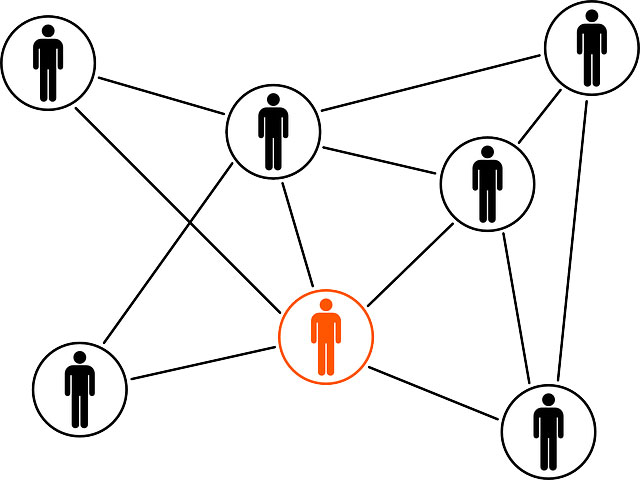Small distributorship business that cost little to begin can be a productive chance for any business entrepreneur. According to investigation, small distributorship is generally viewed as a productive business opportunity.
What it means to be a distributor

The first question is what it means to be a distributor?
To begin with, let start by characterizing what a distributor does. A distributor is a business that purchases noncompeting products or product lines and sells them direct to end users or customers. Most distributors additionally offers a scope of services like after-sale support, guarantee or guidance.
Becoming a distributor puts an entrepreneur in the retail market between the manufacturers and end users. It may be an energizing business. Sometimes, the manufacturer will get enormous amount of demands from retail chain stores, and give those requests to a distributor. A win-win working relationship with a manufacturer can lead to rewarding deals that require almost no painstaking work of the distributor.
Distributors act as the product go-between. Manufacturers designate distributors since a business at his end has existing clients, contacts and connections, and comprehends the local business culture and practices better. The distributor may become the manufacturer's immediate resource for potential purchasers.
Cooperation between suppliers and distributors can be a way to success. Distributorship could be mutually beneficial, which could straightforwardly combine business endeavors together. This collaboration will increase higher success rates, decrease risks and enhance innovation. Some research reports show that the top procurement teams that have effectively combine their efforts with suppliers have improved their capabilities in respect of innovations, quality, reliability and cost reductions, as well as the capability to diminish risks. This additional value can be achieved for both parties in the cooperation, and achieving it alone would prove hard.
What industry has the best potential

Then followed is the question that what industry has the best potential. Many industries are among among the fastest-growing sectors. And if you have experience in home appliance industry, it is highly recommended for entrepreneurs that are willing to explore the distributorship industry. Home appliances occupied a great share of the market and carry great potential, which will bring in great profits for entrepreneurs.
More often than not, the manufacturers of home appliances are established on a norm of excellence, their products are manufactured to strict guidelines and are covered by probably the best warranties in the business.
Some manufacturers take pride in the their long history of service to home appliances industry. What's more, as the company develop, they maintain their focus on craftsmanship and embraced new innovation to make their products more energy-efficient, durable, reliable, and easier to install and maintain. They likewise offer training and backing to guarantee that dealers know how to serve their clients with items.
Understanding your industry's distribution channels and supply chain

Each industry has its own unique distribution channels, which can then vary with different products, regions, or culture background.
There are many ways a product can go from a manufacturer to a retailer. Not all wholesalers serve the same market. Understanding your industry's distribution channels and supply chain can help you find the right wholesale supplier for your retail or online business. Different types of wholesalers include:
Manufacturer: with this kind of manufacture, you can buy products directly from the them. But the owner of boutique stores are a little bit special, who generally buy from small manufacturers.
Importer/Exclusive Distributor: A company might have the exclusive right to import and distribute a product in a certain country. Some may sell directly to retailers, others sell to smaller local wholesalers who continue to sell to stores.
Wholesaler/Regional Distributor: There are usually regional wholesalers who take delivery of boxcar-sized lots and sell to local wholesalers, who then sell to small businesses.
Jobbers: These individuals make daily deliveries to local grocers and retail brick-and-mortar stores.
Now suppose you have decided on which kind of distributor you would like to be, then next step is to begin the contact with a wholesale supplier.
You can begin contacting wholesale distributors, either using the list you got from the manufacturer, phone book listings, or a wholesale directory and try to find out:
1. Their minimum order requirements
2. Their wholesale unit prices
3. The region they supply
You can make this first contact by phone or email, then follow up the possible cooperation if you need more information or would like to move forward. To find the best possible match for your business, be honest about what you're looking for and try to sound sincere if you want to begin the cooperation.
Don't be afraid to let the people you talk to know you are doing research and looking at other competitors as well. Sometimes, you can get the inside scoop on them.
Strengthen your relationship with the supplier

Besides, you are advised to follow next steps to strengthen your relationship with the supplier. As that happens, your own customer relationships will strengthen.
1. Thinks about why your business exists - what is your "Why"?
2. List out the reasons your committed customers purchase from you, and why they stay loyal.
3. Decide if you can improve on any stage in the process, or if you are doing everything for the best result.
4. Now make it clear that how your suppliers can support you by either continuing to do what they do or by improving something they do.
5. Focus on all key points where you believe your suppliers can improve.
6. Ask them to link their "Why?" with your "Because" so everyone can work on improving how they help you to be the best you can be.
For the time being, if you have a great idea for a product or service, it’s good. If you think you can start a new business and eventually thrive because of this idea, that’s great. But the last thing you should do is rush into this without doing a bit of research. Not doing your market research will risk your business and may doom your business even before you get it off the ground. You need to know the nature of the business as well as figure out who your target demographic is. If you want to know how to be a distributor, please read the following article and prepare yourself to properly start a business.


